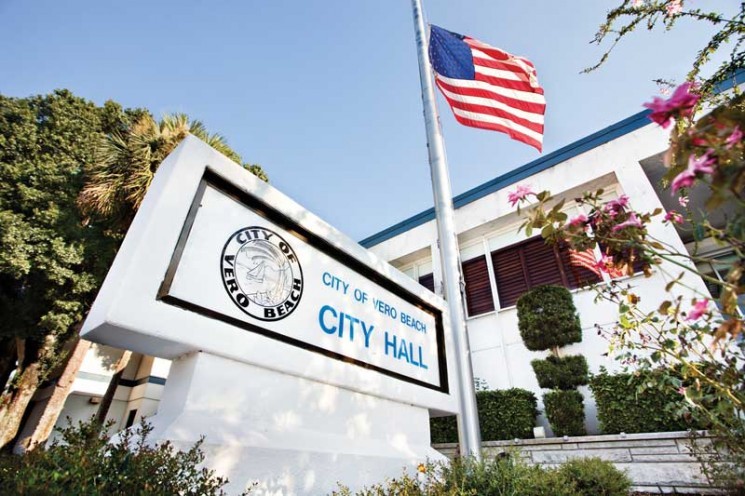
VERO BEACH — Indian River County officials managed to slog through their huge $252 million budget in one day, but the City of Vero Beach will need yet another workshop Aug. 7 because the City Council spent five days asking questions of marginal importance instead of taking bold action to shrink government.
The five elected City Council members quizzed city department heads ad nauseum about everything from repair and replacement of sewer pipes to whether the coin-operated washers and dryers at the city marina break even.
An inordinate amount of time was spent analyzing what staff or resources would be needed after a sale of the electric utility to Florida Power and Light were concluded.
The five days of meetings all but ignored the personnel costs – salaries, health insurance and pension contributions – which account for a full 75 percent of the general fund budget.
Council inaction during the workshops also failed to address any specific recommendations to deal with the fact that the city still has an unsustainable ratio of one employee for every 34 city residents.
The result was that on Friday, taxpayers were being asked to foot the bill for essentially the same government as at the start of budget hearings on Monday.
The Police Department was still shouldering roughly 40 percent of the proposed budget cuts.
At no time during the five days of budget workshops – even during the most controversial portion dealing with the police budget – were there more than a handful of people in council chambers other than those on the city payroll or representing a union.
Few were watching from inside the council chambers except a couple of members of the press and three board members from the Taxpayers’ Association of Indian River County – Paul Teresi, Walter Geiger and Alice Johnson – who took turns monitoring the budget process.
Former Councilman Ken Daige was also there.
The City Council, without Vice Mayor Craig Fletcher who was absent Friday, approved a maximum property tax rate of $2.10 per $1,000 of taxable value.
That rate is up from the current $2.03 per $1,000 of taxable value. The $2.10 rate is referred to as the roll-back rate because it’s the rate that would produce the same property tax revenues next year as in the current year.
“We can always go below this,” Councilwoman Tracy Carroll said for the benefit of the public, but the council cannot exceed that rate now that it’s been approved.
Tax revenues are projected to total roughly $4.2 million, which is supplemented by more than $11 million in direct and direct transfers into the general fund from the electric and water utilities and the other enterprise funds such as solid waste, the airport and the marina.
Another $2 million comes from utility taxes. Communications tax and sales tax add $2.2 million. Gas tax kicks in about a half million and another half million comes from Tallahassee in state revenue sharing.
At the end of the five-day process, the council, at the direction of Mayor Pilar Turner, told City Manager Jim O’Connor and Finance Director Cindy Lawson to go back and cut $134,000 from the budget to get taxes back down to the $2.03 per $1,000 of taxable value that city property owners paid this year.



